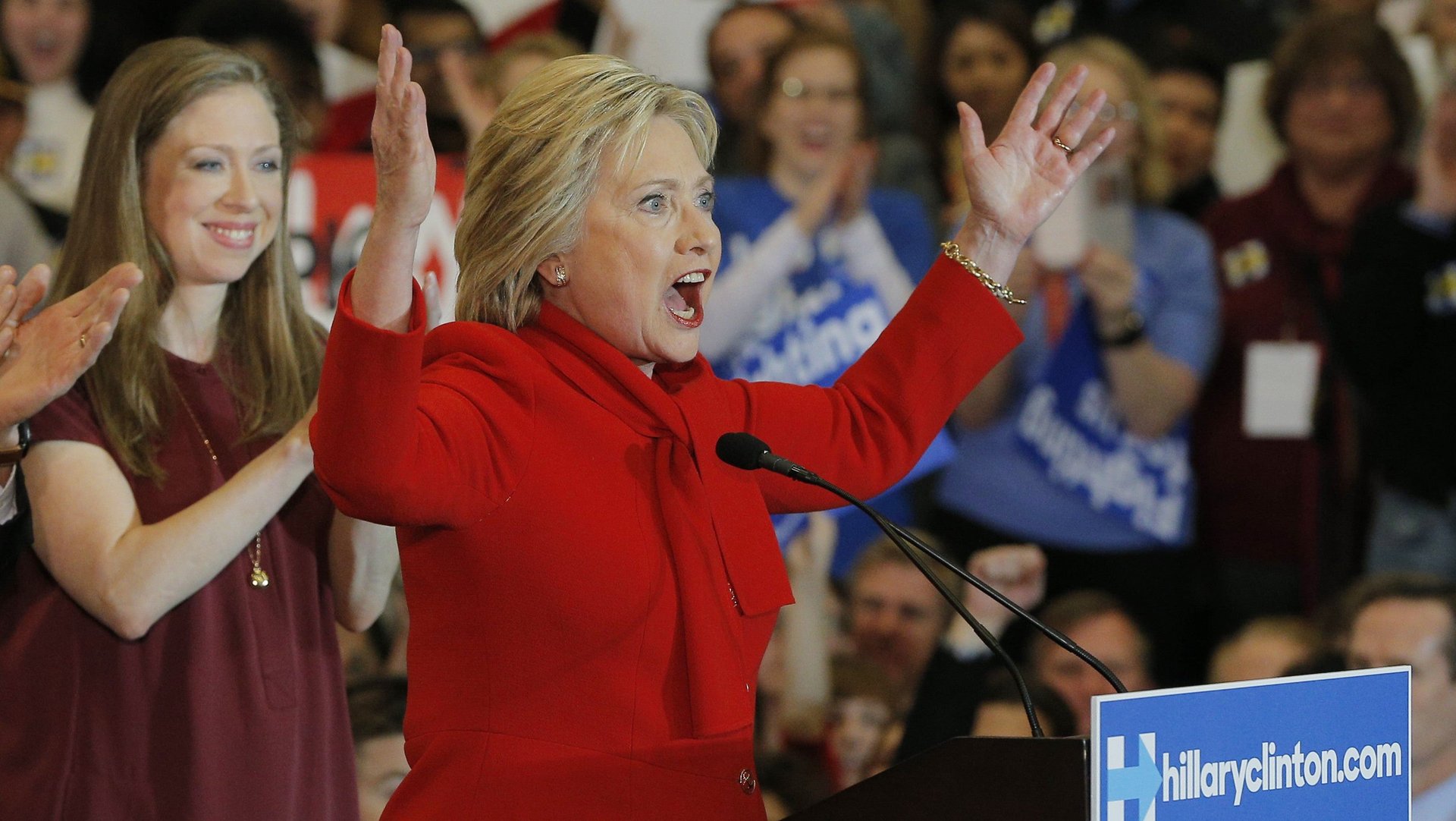No, Hillary Clinton didn’t win Iowa because of six suspiciously lucky coin tosses
The political meme of the moment suggests that Hillary Clinton narrowly edged out her Democratic presidential rival Bernie Sanders in the Iowa caucus due to six consecutive coin tosses wins.


The political meme of the moment suggests that Hillary Clinton narrowly edged out her Democratic presidential rival Bernie Sanders in the Iowa caucus due to six consecutive coin tosses wins.
Iowa’s complicated caucus process does indeed use coin tosses to break ties in individual precincts, but after that it gets a little murky: not all precincts disclosed to the state Democratic Party whether a coin toss took place. But it’s clear Clinton didn’t win every single toss—there were at least seven, according to CNN, or at least a dozen, according to NPR, and Sanders won at least some of them—ranging from “a handful” to “closer to 50-50,” as statistics would suggest.
Here’s one Sanders winner, in which the caller of the the toss was decided by the age-old ”ladies first” protocols.
What’s more, even if Clinton hadn’t won the coin tosses, it still would not have tilted the race in his favor. The explanation why is hellishly complicated (see NPR for a full overview ) but the bottom line is that if coin flips were to have accounted for Clinton’s entire edge, she would have had to win 47 flips in a row.
Leaving an election outcome up to chance is not uncommon in American politics, especially in local races. The laws of 35 states allow a decision by lot. In November, a Mississippi House of Representatives race was decided by drawing straws.